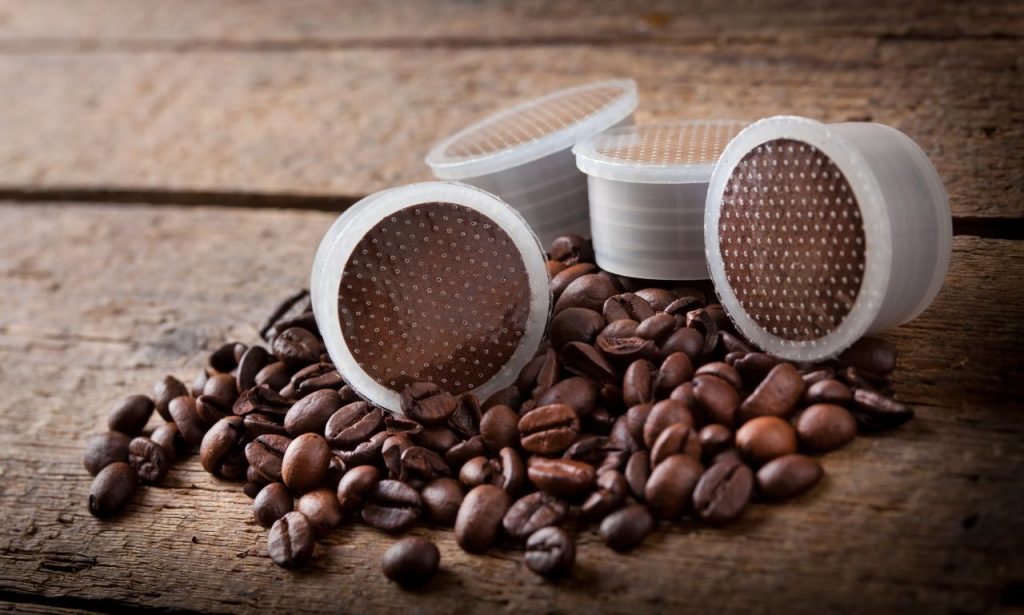When you reach for your morning coffee, the convenience of coffee pods might be a no-brainer. But have you ever wondered, do coffee pods cause cancer? This question has been a hot topic of debate among health enthusiasts and researchers alike. In this comprehensive guide, you’ll explore the technology behind coffee pods, potential health risks, and environmental impacts, all while diving deep into the latest research.
The Evolution of Coffee Pod Technology
History of Coffee Pods
Coffee pods, also known as single-serve coffee containers, revolutionized how you brew your coffee. Introduced in the early 1990s, they offered a convenient and mess-free way to enjoy a single cup of coffee. From the early prototypes to the sophisticated designs of today, coffee pods have come a long way.
Major Brands: Nespresso vs. Keurig

Two giants dominate the coffee pod market: Nespresso and Keurig. Nespresso, known for its sleek design and high-quality espresso pods, caters to those who appreciate a rich, aromatic coffee experience. On the other hand, Keurig offers a wide variety of beverages, from coffee to tea and hot chocolate, in their versatile K-Cups.
Potential Cancer-Causing Compounds in Coffee Pods
BPA: What is it and What are the Concerns?
Bisphenol A (BPA) is a chemical used in the production of certain plastics, including those found in some coffee pods. Research has shown that BPA can leach into food and beverages, potentially causing adverse health effects. Concerns primarily revolve around its role as an endocrine disruptor, which could increase cancer risk.
Acrylamide: Formation and Health Implications
Acrylamide is a chemical formed when coffee beans are roasted at high temperatures. This compound is classified as a probable human carcinogen by the International Agency for Research on Cancer (IARC). While the levels of acrylamide in coffee are generally low, consistent exposure raises concerns about long-term health effects.
Understanding the Health Risks
Coffee Consumption and Breast Cancer: Overview
Studies on coffee consumption and breast cancer have produced mixed results. Some research suggests that moderate coffee consumption may reduce the risk of developing certain types of breast cancer, while other studies indicate no significant correlation. The relationship between coffee and breast cancer is complex and influenced by various factors.
Estrogen Receptor Status: Implications for Risk
Breast cancer can be classified based on estrogen receptor (ER) status. ER-positive breast cancers are fueled by estrogen, and some studies suggest that coffee consumption might influence estrogen metabolism. However, more research is needed to understand the exact relationship between coffee and ER-positive breast cancer.
Genetic Factors: Individual Risk Variability
Your genetic makeup plays a crucial role in how your body processes compounds found in coffee. Genetic differences can affect susceptibility to potential carcinogens in coffee pods. Understanding your genetic predisposition can help you make informed decisions about your coffee consumption.
Environmental Impact of Coffee Pods
K-Cups: Waste and Recycling Challenges
The environmental footprint of coffee pods, particularly K-Cups, is a growing concern. K-Cups are often made from non-recyclable materials, contributing to landfill waste. Efforts to create recyclable or biodegradable pods are underway, but the challenge remains significant.
Hormonal Effects of Plastic in Coffee Pods
The plastics used in coffee pods can contain endocrine-disrupting chemicals that may leach into your coffee. These chemicals can mimic hormones in your body, potentially leading to various health issues, including cancer. Choosing pods made from safer materials can mitigate some of these risks.
Recent Research on Hot Beverages and Cancer

Recent research has shed new light on the potential link between hot beverages and cancer, particularly focusing on the temperature at which these beverages are consumed. Studies have consistently shown that drinking very hot beverages, typically above 65°C (149°F), can significantly increase the risk of esophageal cancer. The International Agency for Research on Cancer (IARC), part of the World Health Organization (WHO), has classified very hot beverages as “probably carcinogenic to humans” (Group 2A).
The primary concern revolves around thermal injury to the esophageal lining. When you consume beverages at high temperatures, they can cause repeated damage to the cells lining the esophagus. Over time, this damage can lead to inflammation and cellular changes that increase the risk of cancer. It’s not the beverage itself, but the temperature that poses the risk. This is a crucial distinction because it means the same beverage, when consumed at a lower temperature, does not carry the same risk.
Research conducted in regions with a high prevalence of esophageal cancer, such as parts of China, Iran, and South America, where traditionally beverages like tea are consumed piping hot, supports these findings. These studies suggest that the cultural habit of drinking very hot tea or mate (a traditional South American drink) is linked to higher rates of esophageal cancer in those populations.
Moreover, laboratory studies have provided further insights into the mechanisms behind this risk. High temperatures can cause molecular changes in the esophageal cells, potentially leading to mutations and cancerous growths. It is recommended to allow hot beverages to cool down to below 65°C (149°F) before consumption to reduce this risk.
In summary, while the type of beverage is not inherently carcinogenic, the temperature at which it is consumed plays a pivotal role in increasing esophageal cancer risk. This emerging body of research underscores the importance of moderating the temperature of your beverages to protect your health.
Key Takeaways for Coffee Drinkers
- Moderation is Key: Enjoy your coffee in moderation to minimize potential health risks.
- Choose Safer Pods: Opt for coffee pods made from BPA-free and eco-friendly materials.
- Stay Informed: Keep up with the latest research to make informed decisions about your coffee consumption.
Conclusion
So, do coffee pods cause cancer? While there are potential risks associated with certain compounds in coffee pods, moderate consumption and informed choices can help mitigate these risks. Balancing convenience and health, you can continue to enjoy your favorite brew with peace of mind.
ALSO READ: Can You Brush Your Teeth with Salt?
FAQs
Look for coffee pods labeled as BPA-free and made from recyclable or biodegradable materials. Brands that prioritize environmental sustainability and use safer plastics are generally better choices.
Opt for coffee pods that are certified BPA-free and avoid over-roasting your coffee beans to minimize acrylamide formation. Additionally, consider using a coffee maker that doesn’t rely on plastic components.
Yes, moderate coffee consumption has been linked to various health benefits, including improved cognitive function, reduced risk of certain chronic diseases, and potential protective effects against some types of cancer.
Recycling options for coffee pods vary by brand and location. Some brands offer recycling programs, while others produce pods that are not recyclable. Check with your local recycling facility or the coffee pod manufacturer for specific guidelines.
Symptoms of BPA exposure can include hormonal imbalances, reproductive issues, and increased risk of certain cancers. However, these symptoms can be difficult to directly attribute to BPA exposure without thorough medical evaluation.




